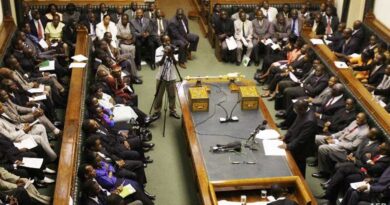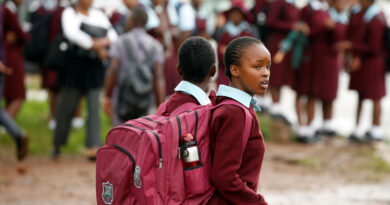ZIMSEC CLARIFIES GUIDELINES FOR LEARNERS FROM SOUTH AFRICA
The Zimbabwe School Examinations Council (Zimsec) has laid down the technicalities that will be considered for absorbing learners coming from outside the country into the country’s education system.
The country is anticipating an influx of learners into its system after the extended 30 June deadline for the expiry of the Zimbabwe Exemption Permits (ZEP) in South Africa and school going children are expected to produce valid examination results that will be measured using the qualification equivalence grade conversion system, so that they can be admitted to further their education.
For students who may not have sat for examinations yet in South Africa but want to return to school in Zimbabwe, they will be assessed at the school level by the Ministry of Primary and Secondary Education.
Admittance into primary and secondary education will be measured by syllabus coverage of the learners from South Africa which will determine where they will be placed to continue with their education before they sitfor public examinations that are assessed by Zimsec.
Zimsec public relations manager Ms Nicky Dlamini told Sunday News that they will assess students that produce an exit qualification from South African schools or any other country to see its comparability with local examination standards, either Cambridge or Zimsec.
“The grade conversion is what is termed ‘Qualifications Equivalence’. This is a process where candidates have their grades equated to the grading standards of the country in which they wish to continue their education. For instance, candidates would need to get an equivalence of their Matric to Zimsec qualifications so as to know which level they have attained according to the educational system in Zimbabwe,” she said.
Ms Dlamini explained that countries have standards that they follow regarding learners coming from other jurisdictions.
“All examination boards have a standard that they abide by when conducting equivalence. The syllabus of the country of origin and the syllabus of the country in which they wish to study are compared and contrasted. The assessment models and instruments are also used. These standards are according to assessment standards set and regulated by the Southern African Association for Education Assessment (SAAEA), Association for Education Assessment for Africa (AEAA), and the International Association for Education Assessment (IAEA),” said Ms Dlamini.
The process is not free. Ms Dlamini said parents and guardians should be aware of the Equivalence of Qualifications costs which arepegged at US$15 which is payable in local currency at the interbank rate of the day.
This process takes a maximum of 48 hours and learners must provide their original certificates awarded by the examining board.
Director of Communications and Advocacy in the Ministry of Primary and Secondary Education Mr Taungana Ndoro recently said the country was ready to absorb learners coming from South Africa.
“We have systems in place in our sector to assess learners from other countries so that we place them in appropriate levels or grades. That has been going on for a long time. So, the affected children from South Africa are most welcome,” he said.
He concurred with Ms Dlamini that extraterritorial learners in the Zimbabwean education system would have their competencies assessed accordingly using set guidelines to determine the level of absorption of the curriculum the learner would have made to determine the grades that they would fall into. South Africa recognises the last grade of high school as Grade 12 or matriculation while Zimbabwe uses Upper Six as the last exit qualification for high school that ushers students into tertiary institutions.
Government is on record as saying it is anticipating a mass arrival of Zimbabweans from South Africa after the expiry of their permits.
“Cabinet would like to inform the public that mass deportations of undocumented Zimbabweans were expected from South Africa following the expiry of Zimbabwe Exemptions Permits (ZEP) which South Africa had granted them. However, most ZEP holders do not qualify for the outlined critical skills visas hence the low uptake (of applications for renewals). The Zimbabwean government has issued guidelines and regulations for returning residents which include one duty free vehicle and no limit to personal property,” Information, Publicity and Broadcasting Services Minister Cde Monica Mutsvangwa is on record as saying.
Zimbabwean ZEP holders in the neighbouring country were given up to June to regularise their stay or face deportation. Reports indicate that about 178 000 could be forced to leave South Africa as they had not applied for further stay by end of November. *_-Sunday News_*




